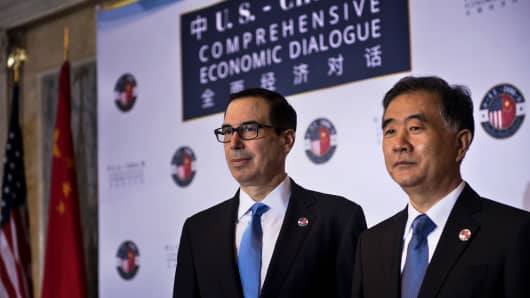The United States and China launch a critical round of trade talks on Wednesday amid deep differences over Washington's demands for structural economic reforms from Beijing that will make it difficult to reach a deal before a March 2 U.S. tariff hike.
The two sides will meet next door to the White House in the highest-level talks since U.S. President Donald Trump and Chinese President Xi Jinping agreed a 90-day truce in their trade war in December.
People familiar with the talks and trade experts watching them say that, so far, there has been little indication that Chinese officials are willing to address core U.S. demands to protect American intellectual property rights and end policies that Washington says force U.S. companies to transfer technology to Chinese firms.



